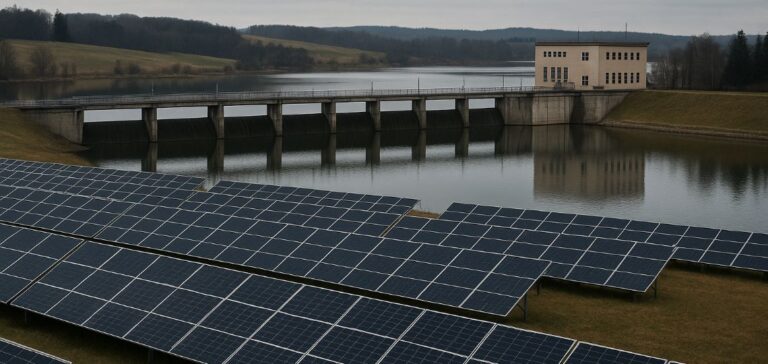The European Investment Bank (EIB) has granted financing of PLN2.25 billion ($562mn) to PGE Polska Grupa Energetyczna (PGE), Poland’s leading electricity provider, to support the development of its renewable energy projects. This funding will enable the expansion of the national photovoltaic network and the modernisation of an existing pumped-storage hydropower plant.
Strengthening renewable energy capacities
According to an announcement made on April 25, this loan is the seventh agreement of its kind between the EIB and PGE. The investments will support the installation of photovoltaic capacities with a combined power output of approximately 730 megawatts (MW) and the modernisation of the Porąbka-Żar pumped-storage plant, with a capacity of 540 MW, located in the south of the country.
This financing is part of the REPowerEU programme, aimed at strengthening energy transition in Europe. “This agreement will increase the available renewable energy capacities, meeting the strategic needs of Poland and the European Union,” said Teresa Czerwińska, Vice-President of the EIB.
Grid modernisation and support for regional development
The projects will mainly be carried out in Polish regions where the gross domestic product per capita is below the European Union average, thus contributing to economic and territorial cohesion. The Porąbka-Żar plant will enhance grid flexibility by storing excess energy produced during periods of low demand.
Dariusz Marzec, President of the Management Board of PGE Group, stated that “ensuring stable supplies of clean energy is essential for the effective decarbonisation of the energy sector.” The EIB’s support will help PGE to increase the share of renewable energies in its energy mix.
In 2024, the EIB invested €2.5bn ($2.69bn) in Poland for climate projects, including €850mn ($914mn) to strengthen electrical infrastructure. In early 2025, the bank also financed the construction of the Baltica 2 offshore wind farm, continuing its investments in renewable energy sources.





















